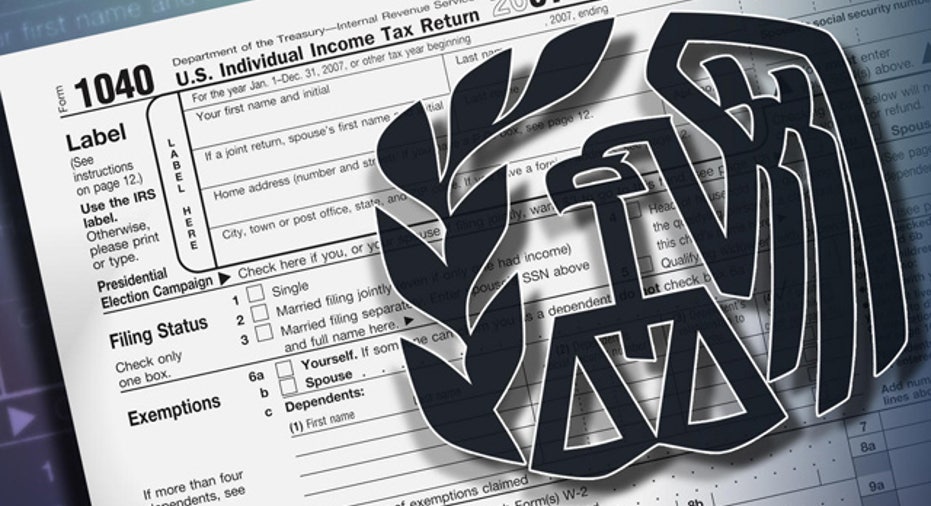Blame Congress? Your Tax Refund Could Be Delayed in 2015

Tax refunds could be “substantially delayed” in 2015, according to IRS Commissioner John Koskinen.
In a letter to Sen. Ron Wyden (D-OR), Chairman of the Senate Committee on Finance, Koskinen said that Congress’ failure to address tax “extenders” would have a significant impact on the 2015 tax season. “Extenders” refer to provisions that expired at the end of 2013.
Without knowing whether or not Congress will retroactively extend these provisions, the IRS cannot properly prepare forms and software or provide guidance to tax professionals.
“This uncertainty, if it persists into December or later, could force the IRS to postpone the opening of the 2015 filing season and delay the processing of tax refunds for millions of taxpayers,” Koskinen wrote in a letter to Sen. Wyden earlier this month.
Koskinen adds that if Congress waits until January to address these extenders, millions of taxpayers may need to file amended tax returns. Refunds would be even more greatly delayed.
The Affordable Care Act Adds Another Wrinkle
The Affordable Care Act poses another major challenge this year to the IRS and to tax preparers. 2014 is the first year that the individual mandate is in effect, which means that individuals without minimal essential health coverage have to pay a penalty, collected by the IRS.
“The IRS has been a little not forthcoming in giving guidance that’s needed,” said National Association of Tax Professionals spokesperson Cindy Hockenberry, an Enrolled Agent and the manager of the NATP’s Tax Knowledge Center.
“What is a tax preparer’s requirements? Do they need to see an insurance card … or policy?” Hockenberry asked. “There’s a lot of burden on the preparer, and because of that, it will take longer to get returns finished and the trickle-down effect will be that refunds are issued later.”
Hockenberry added that it will also likely take the IRS a longer time to go through the returns and make sure they’re correct, given that this is the first year the individual mandate is in effect.
Tax attorney Brad Dorin, a partner at New York City firm Selig & Associates, said consolidation efforts at the IRS have also slowed down the agency.
“I think there’s a willingness on the IRS’s part to communicate to everyone involved with preparation of returns … but I don’t know all of the resources are there at this point,” Dorin said.
The American Institute of CPAs’ Director of Tax Advocacy Melissa Labant agreed that IRS seems ill-prepared to deal with all of the questions associated with the Affordable Care Act.
“They now have a dedicated site on IRS.gov to post information, but there are a lot of questions coming in during a relatively short period before filing season,” Labant explained. “They’re trying to address those issues and provide guidance as much as possible … but the IRS has fewer employees and a heavier workload, so they have to do more with less people.” The IRS did not make a spokesperson available for comment on this story.
What the Holdup Means for Taxpayers
The IRS generally begins accepting tax returns around the third week of January. But if Congress waits until the new year to act on extenders, Hockenberry said this date could get pushed by a few weeks … dramatically shortening tax season.
“They can’t extend [the deadline] past April 15,” Hockenberry explained.
This shortened tax season will place more of a strain on accountants and individuals filing their own taxes.
Once Congress decides which provisions will be extended, taxpayers will need to scramble to find receipts in order to take the deductions available to them. Some of the provisions that could be extended include credits for energy-efficient home improvements, a tuition and educational fees credit and a deduction for teaching-related expenses. All in all, there are 57 provisions that expired at the end of 2013, Hockenberry said.
“It’s a crap shoot on what could be extended and what could not be,” Hockenberry explained. Labant added that the outcomes of the midterm elections could affect the eventual decisions.
All in all? The experts say individuals shouldn’t count on a tax refund early in the new year.
“We won’t know how long a delay to expect until Congress addresses extenders,” Labant said. “But probably yes – there will be a delay.”



















